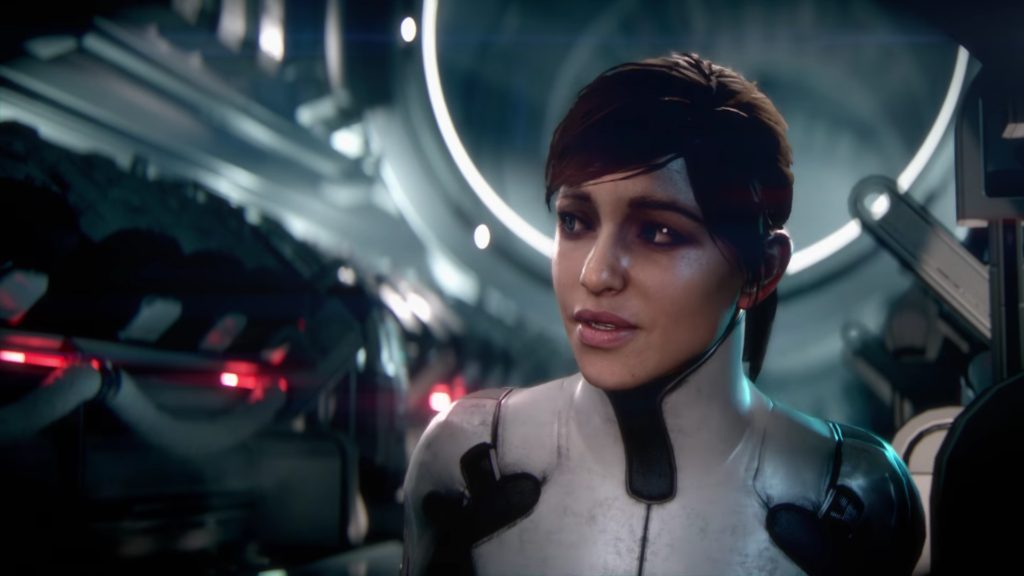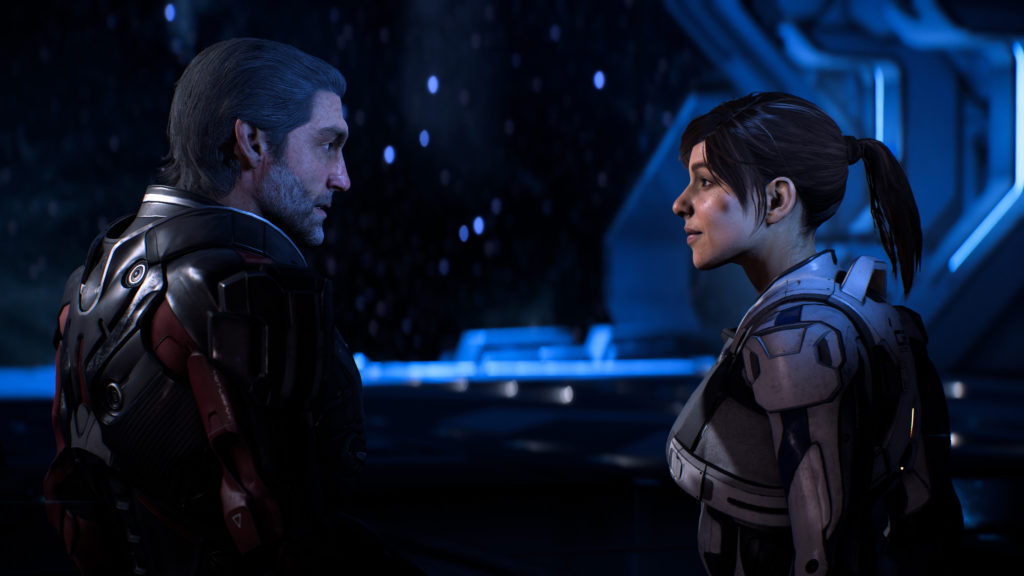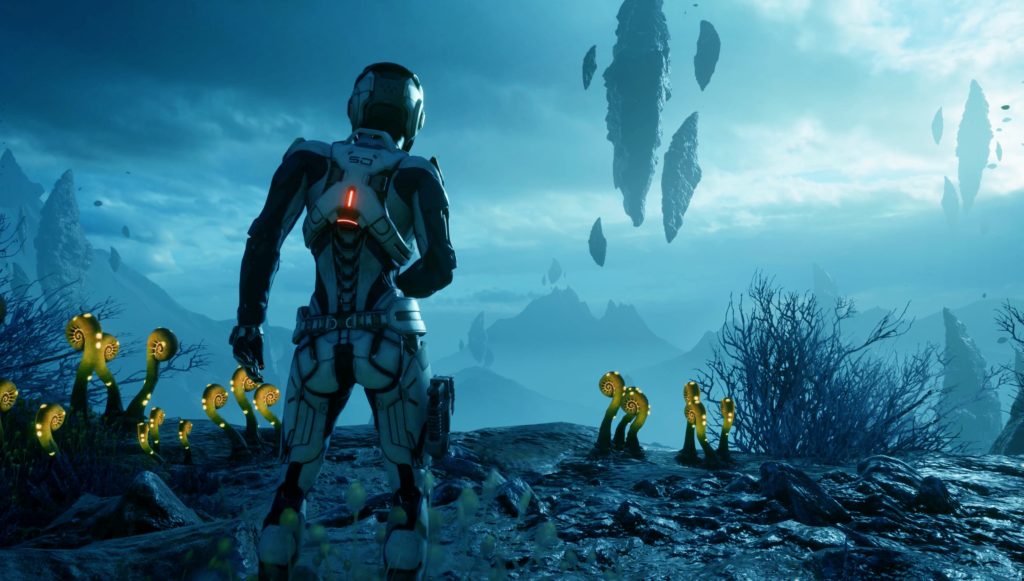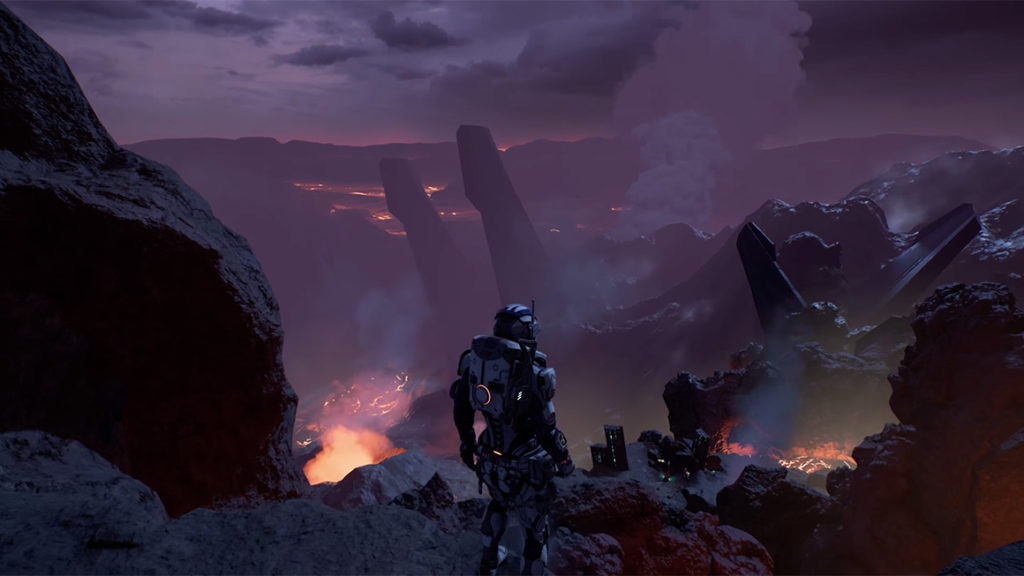Mass Effect – These two words are enough to make thousands of people smile. The original trilogy brought to us a wonderful and engaging world of interplanetary and interspecies sociopolitical strife, where each choice felt like a tough decision. It mattered how you interacted with the people around you, and it influenced how they would react to you. Mass Effect 2, especially, was storytelling at its best. Right from the beginning where you witness Normandy being blown to smithereens, it engrosses and sucks you in, with its world and its diverse characters. Mass Effect 3‘s ending disappointed a little, but that never stopped the game from being an amazing journey.
Now, Andromeda does not need any introduction, which is both fortunate and unfortunate. Everyone has seen the memes and the animation issues and the bugs and whatnot. Here’s my take, though – The game is not as bad as the internet says. But before we get dive into it, let’s have a brief introduction (I’ll try to keep it spoiler-free).
The Game
In Mass Effect : Andromeda, 100,000 members of each species of the Milky Way galaxy are sent in “Arks” to the Andromeda galaxy to look for a new home, where seven “golden” planets need to be investigated as they may hold the possibility to sustain life. You wake up as Scott/Sara Ryder under the leadership of your father and humanity’s Pathfinder, Alec Ryder. Tasked with investigating Habitat 7, you find out that the planet isn’t exactly welcoming, and subsequent events lead to Alec’s death, making you the new Pathfinder. Your objective? Find out what is going wrong, and find safe haven for the thousands of people still asleep on the Ark.
The concept is interesting by itself, but where Andromeda fails to deliver is creating the hook that the previous games had, like the destruction of Normandy and Shepard’s resurrection in Mass Effect 2, or the invasion of Earth in Mass Effect 3. There is a sense of mystery and desperation in the beginning, but it doesn’t seem as profound. Two major threats stand in your way; the Kett and the Remnant. While the former is only interested in destroying every other species they come across, the latter is more inclined towards preservation of life. The premise is good enough, in my opinion, but unfortunately it’s not hard to miss amidst all the issues.
The Good
Like I said, the game isn’t as bad as people are saying it is. Of course, it’s nowhere close to Mass Effect 2 (which I believe is the best in the entire franchise), but that doesn’t mean it doesn’t deserve any credit. Andromeda excels in three areas: Graphics, environment and individual combat (individual being the keyword). The Frostbite engine makes sure that that your surroundings never look dull, even if you’re in a barren desert, and the resulting environments are nothing short of breathtaking. While original trilogy didn’t exactly lack in diverse locations, this is one key area where Andromeda shines, thanks to its open level design. While the levels in the previous games had a mainly linear progression, here you can approach your targets and destinations in multiple ways, a lot of which require the use of Nomad, Andromeda’s all-terrain vehicle. Exploration and discovery are the key driving forces, and the game seems to have implemented these beautifully.
Andromeda has also added the ability to jump and boost, making movement around the maps much more interesting and fun. It’s possible to hover for a bit if you have your weapon drawn and zoomed, giving you a chance to take your enemies down while you’re in the air. Combat was never the best thing about Mass Effect titles, but in Andromeda it feels much more prominent, not to mention a lot better. The Classes have been broken down as well. Now you select your abilities from three trees: Combat, Biotics and Tech. Investing skill points in these trees unlocks different profiles which you can change on-the-fly, allowing you adjust your combat style according to the situation. It offers the player much more control over how they want to take on their foes. While the original trilogy had you choose your combat style right from the beginning, Andromeda gives you that choice every step of the way. You equip up to three abilities at a time, and have 4 slots to set your favourite profiles, giving you access to 12 abilities at the push of a button. All the elements make the combat feel a lot more fluid and versatile (and so, so satisfying). This plays to Andromeda’s key strengths, as the game seems much more action-oriented than its predecessors.
Dialogue, which is probably one of the biggest strengths of Bioware games seems to have seen some improvement as well. The original trilogy offered a somewhat rigid choice with its Paragon/Renegade system, leading to an ultimately binary decision: Good or bad. However, the new tone wheel in Andromeda offers more “grey” in decision making with four emotional responses, which range from focused to casual to sassy. The long-term consequences are not exactly clear, but they sure affect how people react in the situation and offer the players a better choice regarding how they want to interact with characters. Add to that the fact that Bioware is known for making deep and engaging narratives, and you understand how important it becomes to pay attention to what others have to say to you. It also makes the characters around you more interesting and worth investing in.
While the characters are interesting enough, your squad seemingly consists of a bland cast, at least in the beginning. It’s hard to feel for them the same way one might have for Garrus or Joker. But the loyalty missions are back and allow you to expand your relationship, and the dialogue options in Andromeda are again helpful in diverting from a binary point of view. In addition to having sexual relationships with your crew (same sex, intersex or interspecies), the game also gives you multiple opportunities to form a platonic bond with people. It allows players to explore relationships in a bigger and better way, where love, care and intimacy do not exist as something that ultimately lead to a sex.
One of the best things about Andromeda is perhaps the scale of the game. The planets are gigantic and worthy of exploration. The open level design offers a lot for the players to discover, with the appropriate means of doing so. Using the Nomad becomes a necessity as times, lest you succumb to the toxic environment of the planet. Your actions lead on the planet to an increase in its viability, bringing it a little closer to being humanity’s next home. Not only does it make your actions important (thus adding to the weight of the missions), it also gives you a reason a stick around.
The Bad
Mass Effect: Andromeda brings a lot of changes to the franchise, and not all of them are for the better. There are a lot of technical issues as well, which I’m sure you must have seen all over the internet by now. While individual combat feels a lot cooler and better, you’re not actually working on your own. The original trilogy allowed players to control squad abilities, letting them customize what abilities the squadmates could have and when and how they would be used in the battlefield. These options are completely absent in Andromeda. You can decide your squad’s abilities and powers using the skill points, but they pretty much act on their own, which is where the problem begins. You can have one of them jumping right in the middle of the enemies, or go stand next to a very powerful foe while shooting at a different one. This could work out if all of them had strong melee abilities, but alas, that’s not the case. Add to the fact that your squadmates can fall down and need to be revived, and you can begin to understand why it gets frustrating.
Enemy AI isn’t exactly the brightest either. Here the conventional cover-based shooter model seems to go a little haywire, as in the absence of a cover, the Enemy AI sometimes seems to “break”. Getting stuck in a loop, running away without firing when approached up-close; these are just a couple of examples. Even though it doesn’t happen all the time, it’s pretty hilarious to watch when it does.
Paying more attention to the dialogues means paying close attention to the facial animations, which are downright entertaining in my opinion (not in a good way, mind you). It’s sort of hard to focus on the conversation when Sara’s eyes looks like they’re trapped in the body, trying frantically to get out. It almost feels like her expressions have a mind of their own. Another extremely freaky thing is when the characters are talking and nothing else on the face apart from the lips has any sort of movement whatsoever. Or when she looks like she’s sad but maybe happy (also?) when she talks about her father’s death. And these problems aren’t limited to faces only. Sometimes the NPCs forget how to walk. Or move their arms. Or their both at once. Luckily, these bugs aren’t game-breaking, but still cause a problem, especially when you’re trying to be invested in the game’s story. Not only does it undermine the voice-acting (which is great), but also takes the seriousness out of the whole mission. I mean, it’s hard to save an entire race when your character looks like she has no grip on reality, right? Right?
Another problem with the animations (apart from the facial ones and bugs) occurs when it comes to interplanetary travel. Each time you want to travel to or from a planet, you’re greeted by a transit animation (like a cutscene, but unskippable). Now this wouldn’t be much of a problem if you could skip it, or it was short, or if it only occurred for the initial few times. What makes it problematic is the fact that some side quests require you to travel between different planets multiple times, and each time you do it, you have to sit through the animation. It gets old really fast and can end up making the quest feel like a chore, especially when it’s a 5 minute long side quest that takes half an hour to complete just because you had to travel so much.
The inventory system is cumbersome. So are crafting and upgrading, which require research and development (separately), which in turn require different resources. And the menus and the UI certainly don’t help in easing it for you in any way. It took me quite a while to figure out how to get things right. It also makes keeping a track of all the quests a little tiresome and frustrating.Piling upon that is the weird waypoint system, which seems to disappear at times. “FOR THE LOVE OF GOD, WOULD YOU PLEASE STAY VISIBLE SO I CAN GET TO THE LOCATION I’VE BEEN LOOKING FOR SINCE THE PAST 20 MINUTES?!?” was something I heard myself say multiple times while roaming around on the Nexus. Still, once you get the hang of it and actually get into the game, things begin to improve.
The Verdict
All the elements that make Mass Effect a great series are present in Andromeda, but they’re buried under a pile of issues, both technical and otherwise. The locations look amazing, the combat is better than ever, and the story is engaging enough to keep you interested. The game is no means the epitome of the Mass Effect experience, but it has its strengths and needs to be recognized for them. To sum it up, my feelings about the game are a little mixed. It is a lot better than what I had expected, even if it stumbles along the way. Which happens a lot. 😛
Register with us for the best in gaming, and join us for video game discussions on our forums.










